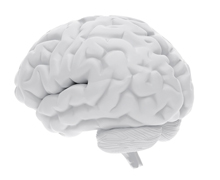
An unintended consequence changed the course of a genetic researcher’s work and could result in improving the lives of millions of people around the world. Xiang-Dong Fu, Ph.D., and others at the University of California San Diego School of Medicine found by silencing a particular protein that affects gene expression they were able to regenerate brain cells and reverse Parkinson’s disease in mice.
Parkinson’s disease is characterized by tremors, slow movement and loss of balance and affects more than a million people in the U.S. At least 60,000 Americans are diagnosed with Parkinson’s every year. Researchers believe these findings could be helpful not only for Parkinson’s but other neurodegenerative diseases as well.
Fu has long studied the protein PTB which works in cells and influences which genes are switched on or off. A colleague looking to streamline a tedious and repetitive task while working with a type of connective tissue cell called a fibroblast suggested they try a different technique. While trying to create a cell line permanently lacking in PTB they actually saw the fibroblasts become neurons. By inhibiting or deleting the gene that encodes PTB researchers were able to actually transform several types of mouse cells into neurons.
"Researchers around the world have tried many ways to generate neurons in the lab, using stem cells and other means, so we can study them better, as well as to use them to replace lost neurons in neurodegenerative diseases," said Fu, who is a Distinguished Professor in the Department of Cellular and Molecular Medicine. "The fact that we could produce so many neurons in such a relatively easy way came as a big surprise."
Armed with this knowledge, Fu and others turned their focus on Parkinson’s disease. They mimicked Parkinson’s in mice by using a molecule to poison neurons that produce dopamine. That loss of dopamine caused the mice to develop symptoms similar to Parkinson’s disease.
With just one treatment to inhibit PTB, neurons were developed that produced the lost dopamine and the Parkinson’s symptoms disappeared. The movement and response of the limbs of the mice returned to normal and remained that way for the rest of their lives.
"I was stunned at what I saw," said study co-author William Mobley, MD, Ph.D., Distinguished Professor of Neurosciences at UC San Diego School of Medicine. "This whole new strategy for treating neurodegeneration gives hope that it may be possible to help even those with advanced disease."
Fu cautioned this is just a proof of concept and more work needs to be done to ensure these results can be duplicated in humans.
"It's my dream to see this through to clinical trials, to test this approach as a treatment for Parkinson's disease, but also many other diseases where neurons are lost, such as Alzheimer's and Huntington's diseases and stroke," Fu said. "And dreaming even bigger—what if we could target PTB to correct defects in other parts of the brain, to treat things like inherited brain defects? I intend to spend the rest of my career answering these questions."
